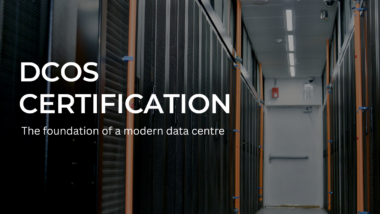How the right colocation services can increase operational control

With an increased flow of data from artificial intelligence, colocation services can improve control.
Right now, there are about 147 zettabytes of data in the world—way more than all the human speech ever recorded. By 2025, this amount is expected to reach 181 zettabytes. Economically, this equates to a data centre industry booming at a compound annual growth rate (CAGR) of 14.9% between 2023 and 2034, resulting in a $279.1 billion industry.
A large portion of data is generated by our constant social media activity and video streaming, but the rise of artificial intelligence (AI) is a game changer on a different scale. The computational power required by AI is enormous.
For companies looking for security, scalability and cost-effectiveness, colocation is becoming a valuable alternative to in-house or public cloud infrastructures.
What is ‘colo’?
Colocation, or “colo,” is a method of maintaining control of your data without physically owning a data centre. It’s a facility where businesses rent space to house their servers and computing hardware, providing power, cooling, physical security, and networking infrastructure to ensure everything runs smoothly. As a colo operator, you have control of the servers, cages, and rooms, guaranteeing complete security over your data.
Cost savings are a significant advantage of colocation. A pay-as-you-go model significantly reduces operational expenses, avoiding the upfront costs of building and maintaining a data centre. It also offers scalability to expand IT infrastructure based on future needs.
Security is another main benefit of colocation. Data centre providers invest heavily in advanced security measures and compliance certifications. They have the staff and expertise to maintain robust firewalls and offer the latest network connectivity protocols, reducing latency for data-intensive applications.
Of course, managing this independently requires expertise and skilled personnel, and companies are more inclined to focus their energies on core businesses than infrastructure maintenance.
Turning to the hybrid model
As demand for data increases, so do costs. Recent research shows that 64% of the “Big Three” hyperscalers—AWS, Microsoft Azure, and Google Cloud—saw cloud costs rise in the last 12 months, sometimes by as much as 25%.
This trend is likely to continue, making colocation a cost-effective option. The hybrid model, which offers flexibility between in-house data centres and a public cloud environment, is a good alternative.
Colocation provides peace of mind with reliability and cost-effectiveness. Public cloud environments can suffer from congestion or bottlenecks that impact performance. Without a colocation fallback, you risk higher operational costs, suboptimal performance, a lack of scalability, and potential security and compliance gaps.
Modern computing demands
The rapid growth of AI and the demands for edge computing are transforming modern data needs. As demand increases, so does energy usage. There’s a constant need to keep pace with new technology while reducing the carbon footprint from increased data output.
However, AI also helps optimize data centre operations by providing deeper insights and enabling proactive adjustments in energy usage, cooling systems, and network performance.
For example, our data centre in Colombia uses AI to monitor infrastructure status and detect power supply faults in milliseconds. It promotes best practices for energy efficiency, resource management, and overall environmental responsibility, and we now boast of some of the lowest power usage effectiveness (PUE) designs in the region.
In summary, choose a colocation partner that suits your needs. Look for proven reliability, robust security, and adherence to relevant compliance standards. Scalability and flexibility are essential for future growth.
Also, think of a provider like Ilkari whose values align with your business goals. Look for those who can help you reduce your carbon footprint and manage your data demands—not just for now but well into the future.
For more information, contact [email protected].









